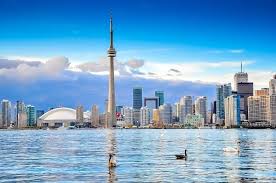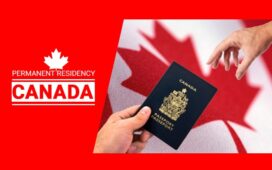Living in Canada offers a wide range of experiences depending on the path you choose. Canadian culture and everything else you need to know about the Great White North is covered in this section: from practical information to driving, culture and etiquette, public transportation, and more.
If you are ready to take the plunge and move to the Land of Maple Syrup, you will need to figure out the pros and cons of living in Canada and how you can find your spot in its culture. This section covers the benefits and drawbacks of relocating to the country, the home of nearly 3,000 hockey rinks and the most polar bears in the world. As well as all of that, we discuss the practicalities of driving, public transportation, public holidays, main airports, embassies, and communications in Canada.
The Pros and Cons of Living in Canada
On face value, there are many pros of living in Canada but the cons of life in the Great White North are often less obvious for people who have yet to move to the North American country. In this section, we discuss the benefits and the disadvantages of living in Canada, so you can approach a possible move there with your eyes wide open.
There are many positives to life in Canada but no person is the same and you are sure to discover secrets about the country that you will come to love. Even so, we have compiled a shortlist of some of the things we think are great about the Great White North.
Excellent Healthcare
Canada’s healthcare system is consistently ranked among the best in the world. One of its benefits is its provision of publicly funded healthcare to all. Canada even has educational healthcare programs that teach the elderly how to avoid injuries and other health risks.
About two thirds of Canadians have private health insurance, which covers additional services, such as dental and eye care, prescription drugs, and private hospital rooms. Around 90% of these premiums are paid for by employers or unions.
Welcoming to All
Canada is generally a very progressive, diverse, and multicultural country. So, if you are considering living there, especially in one of its major cities, this is one of the benefits for foreigners.
In Toronto, Canada’s largest city, more than 140 languages are spoken. Over 20% of the country’s population was born abroad, so expats should fit in well. Most expats live in Ontario, British Columbia, Québec, and Alberta.
The Natural World
From mountains and lakes to urban life, Canada is known for its abundance of nature. It has 20% of the world’s fresh water in its lakes and rivers, and the longest coastline on Earth. And there’s a chance you might bump into bisons, black bears, and bobcats, so pay attention when walking in the woods. You might even hear a wolf howling.
Canada’s waters are also teeming with life. You can see humpback whales, sea otters, and orcas. Plus, nearly two thirds of the world’s polar bears live in this country. So why not join them, from a safe distance of course?
Some of the main natural attractions are: Lake Louise at Banff National Park, Big Muddy Badlands in Saskatchewan, Red Sands at Prince Edward Island, Cathedral Grove on Vancouver Island, and Capilano Suspension Bridge Park in British Columbia.
While there is a lot to love about Canada, no country is perfect. Relocating is about creating your slice of heaven where you happen to land. So, here are a few issues that might make living in Canada challenging at times.
High Cost of Living in the Most Popular Cities
If you want to live in a remote area of Canada it can be relatively affordable. But if you want to live in one of Canada’s densely populated cities, like Toronto or Vancouver, it is going to cost you. For instance, the average annual cost of living in Toronto is 45,400 CAD (33,880 USD), almost twice as much as in Québec, where it is 25,374 CAD (18,944 USD). Vancouver is slightly cheaper than Toronto with the average cost of living at 40,682 CAD (30,397 USD).
French Canadian Québec
If you are moving to Québec, bear in mind that French is the official language. 95% of the population speaks it as either their first or second language. This could make you feel like an outsider if you do not speak French fluently, so you might need some time to adapt.
Immigration is Limited
Although Canada is seen as a country that welcomes lots of expats, the last time it had the highest net migration per capita in the Western World was in 2000. In 2017, Canada was 18th in the world for net migration (the difference between the number of people leaving and entering a country).
Between 2015 and 2019, Canada had only the twelfth highest increase in migrants of all Western countries. Germany, Sweden, Australia, and Austria were in the top four places for the proportion of migrants welcomed compared to their overall population. The United Kingdom and Ireland also saw higher increases than Canada.




